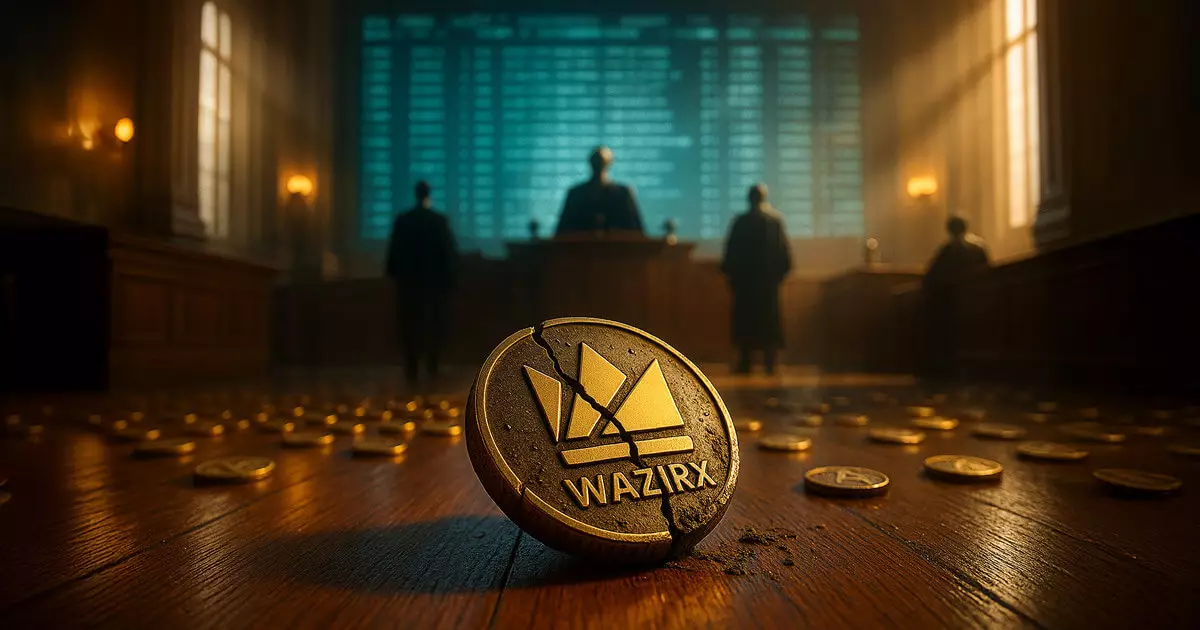WazirX’s recent legal defeats act as a stark reminder of the unpredictable landscape that defines the cryptocurrency market. Following a harrowing $230 million hack in July 2024, the Singapore High Court’s refusal to endorse WazirX’s restructuring proposal has been a pivotal moment for the cryptocurrency exchange. While the company had garnered the support of over 93% of its creditors in an attempt to revive operations, the court’s ruling stands as a testament to the struggle that even giants within the crypto industry can face. This is not merely a setback; it is a clarion call for those in the crypto space to recognize the fragility lurking beneath the surface of digital financial systems.
Compliance vs. Innovation: A Dilemma
WazirX’s commitment to adhering to legal frameworks has been emphasized repeatedly in their statements; however, their subsequent actions suggest an underlying conflict between compliance and market agility. The exchange now contemplates a relocation to Panama while rebranding itself under the banner of its parent company, Zettai, which will transform into Zensui. This move appears symptomatic of a broader movement among crypto firms seeking to circumvent tightening regulatory environments. While the desire for operational freedom is understandable, this strategy blurs the lines between innovation and evasion, raising ethical questions about corporate responsibility.
Trust Erosion in the Crypto Ecosystem
The consequences of the court’s decision and the strategic relocation of WazirX cast a long shadow over the trustworthiness of crypto exchanges. As the company attempts to distance itself from regulatory scrutiny, voices within the crypto community, such as influencer RK Gupta, have labeled the rebranding as a “cover-up.” This skepticism threatens to erode consumer confidence in a market that is already fraught with uncertainty. Individuals investing in cryptocurrencies place immense faith in exchanges, and when major players like WazirX falter, it sends ripples of doubt throughout the entire ecosystem. Investors must carefully weigh their options; blind loyalty to a brand can lead to personal financial catastrophe.
Risk Management and Future Viability
The multi-billion-dollar hack serves as a critical reminder that risk management in the crypto realm is not merely optional but essential. For every dollar invested in cryptographic technology, there should be a commensurate investment in security measures, regulatory compliance, and consumer education. WazirX’s turmoil illustrates that the allure of rapid profit can overshadow the need for robust safeguards, leaving companies vulnerable to significant losses and legal repercussions. With the digital currency landscape progressing at breakneck speed, companies must not only adapt but also anticipate future challenges.
A Need for a New Standard
As WazirX navigates these turbulent waters, the entire cryptocurrency sector must take heed. The future of this transformative financial frontier hinges upon transparent practices, responsible governance, and an unwavering commitment to ethical standards. The WazirX incident begs the question: how do we fortify the industry against such drastic upheavals? It’s high time for a collective approach to redefine norms, establish a regulatory framework that promotes innovation while safeguarding consumer interests, and cultivate an environment of trust that has eluded much of the crypto marketplace.

